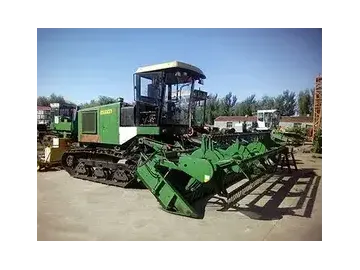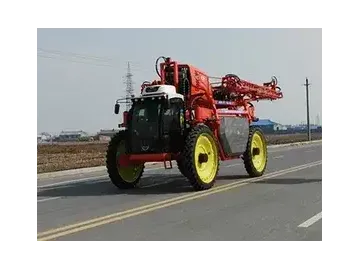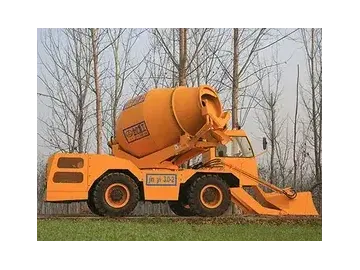Hydraulic Pump
Highlands’s axial piston pumps are built for top performance in the toughest environments to deliver the power and adaptability needed for your equipment. With adjustable displacement and high-pressure capabilities, they are an ideal choice whether you are in heavy industry, mining, or agriculture, providing consistent and stable hydraulic support to keep your equipment running efficiently and continuously.
Our closed-circuit hydraulic piston pumps are expertly crafted as hydrostatic drive solutions for closed systems, perfect for driving large vehicles and mobile machinery. Designed with flexible control, convenient layout, exceptional overload protection, and compact design, these pumps are tailored for high-demand applications such as:
- Advanced agricultural machinery, including rice, wheat, corn, soybean and sugarcane harvesters. Sprayers and self-propelled mowers and forage harvesters.
- Hydraulic drive systems in construction machinery like vibratory rollers, asphalt pavers, concrete mixers, and pump trucks.
- Hydrostatic forklifts, track and tire cranes, large transport vehicles, and self-propelled flatbed carriers.
- Hydrostatic-driven wheel and track loaders, skid steers, track dozers, self-propelled graders, and mining scrapers.
- Specialized equipment like hydrostatic-driven aircraft tow vehicles, deicers, and snowplows.
- Oil and gas exploration and military vehicles, including seismic source carriers, tracked snow vehicles, snow groomers, and tanks.
These pumps embody reliability, precision, and durability, empowering high-performance machinery in the most demanding applications. Trust in our hydraulic solutions to drive your operations forward with unmatched efficiency and power.
- Rice harvester
- Self-propelled sprayer
- Self-loading concrete mixer
- Asphalt feeder
A hydraulic pump works by using mechanical energy to pressurize fluid within a closed system. The pressurized fluid is then used to power machinery like excavators, presses, and lifts.
There are two main types of hydraulic piston pumps: axial and radial. Both types can be fixed or variable displacement. A fixed displacement pump moves a set amount of fluid each cycle, while a variable displacement pump can adjust the amount of fluid moved per cycle.
Choosing the right hydraulic pump depends on an assessment of your application. Consider the required pressure, flow rate, speed, horsepower, and the type of fluid used. Radial piston pumps can handle a variety of fluids, including mineral oil and water-glycol hydraulic fluids, while axial piston pumps are preferred for high-pressure applications.
- The pistons in an axial piston pump are mounted axially, resulting in a compact structure, smaller radial dimensions, and low rotational inertia.
- These pumps have high volumetric efficiency and can operate at high speeds and pressures, making them ideal for high-pressure systems.
- The flow rate and oil intake/output direction can be controlled by adjusting the angle and direction of the swash plate.
- Swash plate designs offer better automatic fluid intake capabilities than bent-axis designs.
- Axial pumps are generally larger in axial dimensions, with greater axial forces and a more complex structure.
Compared to gear pumps and vane pumps, piston pumps offer distinct advantages:
- High operating pressure, with ratings typically between 20-40 MPa and up to 1000 MPa.
- Easy to vary displacement by changing the stroke or rotation direction, allowing for single or bi-directional flow control.
- Wide speed range due to design flexibility, with options for different piston diameters or quantities to achieve various flow rates.
- High power transmission capability.
Overall, piston pumps stand out for their high pressure, compact structure, efficiency, and ease of flow adjustment, making them widely used in high-pressure, high-flow applications such as hydraulic presses, construction machinery, and marine equipment.




